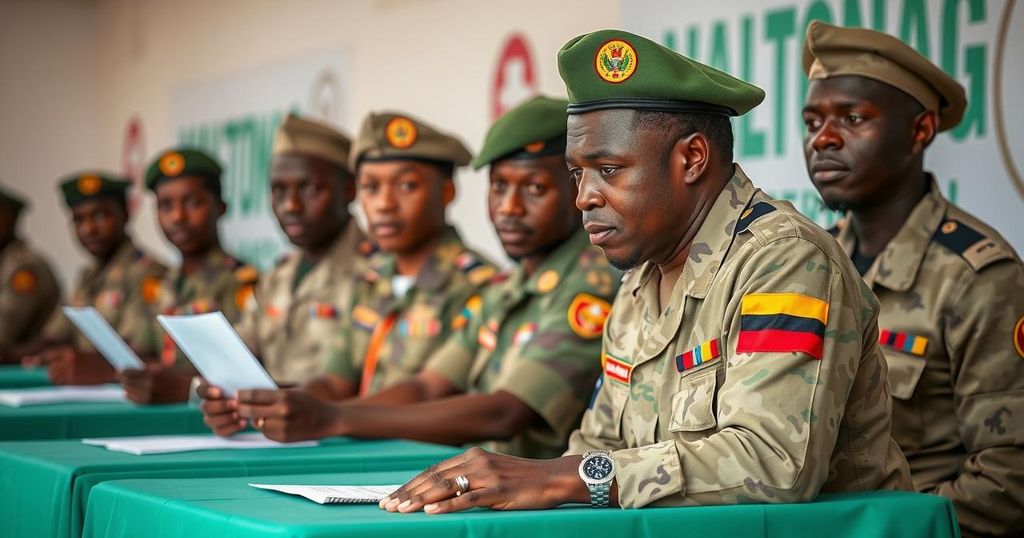Chad Votes in General Election Amid Low Turnout and Opposition Boycott

Chad conducted a general election under heavy scrutiny, with a low voter turnout of 38% largely due to an opposition-led boycott. President Mahamat Idriss Deby Itno encouraged participation, but many citizens expressed skepticism about the legitimacy of the voting process. The elections are viewed as critical to Chad’s transition to democracy, yet significant concerns about their integrity remain amidst ongoing political and socio-economic challenges.
Chad held a general election on Sunday, which the government promotes as a vital step toward ending military rule. However, turnout was markedly low, reported at only 38 percent, largely attributed to an opposition-led boycott urging citizens to abstain from voting. Opposition leader Succes Masra expressed that the majority of voters remained home following the boycott call, suggesting that the election’s outcome had been predetermined.
In contrast, President Mahamat Idriss Deby Itno, who ascended to power in a military coup in 2021, urged voters to participate in what he termed a “historic day.” Despite his encouragement, many citizens voiced skepticism regarding the electoral process, mirroring sentiments of disenchantment highlighted by citizens like Herve Natouingan and Patrice Lumumba Deoumoundou. Returning to vote earlier on Saturday, military personnel and nomads had reported a higher turnout, even as many questioned the legitimacy of the elections.
The election occurs amid severe socio-political challenges such as violence from extremist groups and environmental stressors posed by climate change. Chadian officials insist that these elections signify the conclusive shift toward democratic governance since Deby assumed presidency. Yet opposition parties vehemently contest the legitimacy of the electoral process, having already raised concerns about the integrity of the voting mechanisms and results.
Overall, the turnout results and skepticism surrounding the electoral process reveal the citizens’ deep-rooted mistrust of governance frameworks. As Chad navigates through these turbulent waters of potential democratization, it is crucial to assess what steps will be taken next to ensure a legitimate transition to democracy amidst widespread dissatisfaction.
Chad has been under military rule since 2021 after Mahamat Idriss Deby Itno took power following his father’s death, who had ruled for three decades. The recent elections were touted by the government as an important series of steps necessary to transition from military dictatorship to a democratic system. However, opposition factions claim that the elections are a mere façade designed to legitimize a regime they perceive as illegitimate, demanding a boycott. The political climate in Chad is further complicated by security threats from extremist groups, particularly in the Lake Chad region, as well as socio-economic challenges brought on by climate change, which exacerbate local grievances.
In conclusion, the recent elections in Chad highlight a significant divide between the ruling government and opposition parties, exacerbated by low voter turnout largely influenced by calls for boycott. The legitimacy of the electoral process remains contentious, as many citizens express skepticism about the existing power structures and their ability to effect real change. The unfolding situation reflects Chad’s ongoing struggle to navigate a complex transition toward democracy while addressing severe socio-economic and security challenges.
Original Source: www.hudsonvalley360.com







